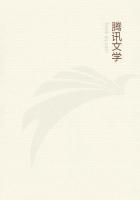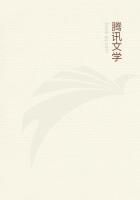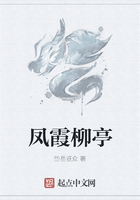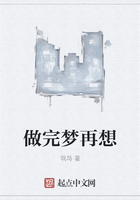But supposing we had the authority, I would ask what good can result from the examination? Can we declare the Bank unconstitutional, and compel it to desist from the abuses of its power, provided we find such abuses to exist? Can we repair the injuries which it may have done to individuals? Most certainly we can do none of these things. Why then shall we spend the public money in such employment? Oh, say the examiners, we can injure the credit of the Bank, if nothing else, Please tell me, gentlemen, who will suffer most by that? You cannot injure, to any extent, the stockholders. They are men of wealth--of large capital; and consequently, beyond the power of malice. But by injuring the credit of the Bank, you will depreciate the value of its paper in the hands of the honest and unsuspecting farmer and mechanic, and that is all you can do.
But suppose you could effect your whole purpose; suppose you could wipe the Bank from existence, which is the grand ultimatum of the project, what would be the consequence? why, Sir, we should spend several thousand dollars of the public treasure in the operation, annihilate the currency of the State, render valueless in the hands of our people that reward of their former labors, and finally be once more under the comfortable obligation of paying the Wiggins loan, principal and interest.
OPPOSITION TO MOB-RULE
ADDRESS BEFORE THE YOUNG MEN' S LYCEUM OF SPRINGFIELD, ILLINOIS.
January 27, 1837.
As a subject for the remarks of the evening, "The Perpetuation of our Political Institutions "is selected.
In the great journal of things happening under the sun, we, the American people, find our account running under date of the nineteenth century of the Christian era. We find ourselves in the peaceful possession of the fairest portion of the earth as regards extent of territory, fertility of soil, and salubrity of climate. We find ourselves under the government of a system of political institutions conducing more essentially to the ends of civil and religious liberty than any of which the history of former times tells us. We, when mounting the stage of existence, found ourselves the legal inheritors of these fundamental blessings. We toiled not in the acquirement or establishment of them; they are a legacy bequeathed us by a once hardy, brave, and patriotic, but now lamented and departed, race of ancestors.
Theirs was the task (and nobly they performed it) to possess themselves, and through themselves us, of this goodly land, and to uprear upon its hills and its valleys a political edifice of liberty and equal rights; it is ours only to transmit these--the former unprofaned by the foot of an invader, the latter undecayed by the lapse of time and untorn by usurpation--to the latest generation that fate shall permit the world to know. This task gratitude to our fathers, justice to ourselves, duty to posterity, and love for our species in general, all imperatively require us faithfully to perform.
How then shall we perform it? At what point shall we expect the approach of danger? By what means shall we fortify against it?
Shall we expect some transatlantic military giant to step the ocean and crush us at a blow? Never! All the armies of Europe, Asia, and Africa combined, with all the treasure of the earth (our own excepted) in their military chest, with a Bonaparte for a commander, could not by force take a drink from the Ohio or make a track on the Blue Ridge in a trial of a thousand years.
At what point then is the approach of danger to be expected? I answer: If it ever reach us it must spring up amongst us; it cannot come from abroad. If destruction be our lot we must ourselves be its author and finisher. As a nation of freemen we must live through all time, or die by suicide.
I hope I am over-wary; but if I am not, there is even now something of ill omen amongst us. I mean the increasing disregard for law which pervades the country--the growing disposition to substitute the wild and furious passions in lieu of the sober judgment of courts, and the worse than savage mobs for the executive ministers of justice. This disposition is awfully fearful in any community; and that it now exists in ours, though grating to our feelings to admit, it would be a violation of truth and an insult to our intelligence to deny. Accounts of outrages committed by mobs form the everyday news of the times.
They have pervaded the country from New England to Louisiana; they are neither peculiar to the eternal snows of the former nor the burning suns of the latter; they are not the creature of climate, neither are they confined to the slave holding or the non-slave holding States. Alike they spring up among the pleasure-hunting masters of Southern slaves, and the order-loving citizens of the land of steady habits. Whatever then their cause may be, it is common to the whole country.
It would be tedious as well as useless to recount the horrors of all of them. Those happening in the State of Mississippi and at St. Louis are perhaps the most dangerous in example and revolting to humanity. In the Mississippi case they first commenced by hanging the regular gamblers--a set of men certainly not following for a livelihood a very useful or very honest occupation, but one which, so far from being forbidden by the laws, was actually licensed by an act of the Legislature passed but a single year before. Next, negroes suspected of conspiring to raise an insurrection were caught up and hanged in all parts of the State; then, white men supposed to be leagued with the negroes; and finally, strangers from neighboring States, going thither on business, were in many instances subjected to the same fate. Thus went on this process of hanging, from gamblers to negroes, from negroes to white citizens, and from these to strangers, till dead men were seen literally dangling from the boughs of trees upon every roadside, and in numbers almost sufficient to rival the native Spanish moss of the country as a drapery of the forest.


